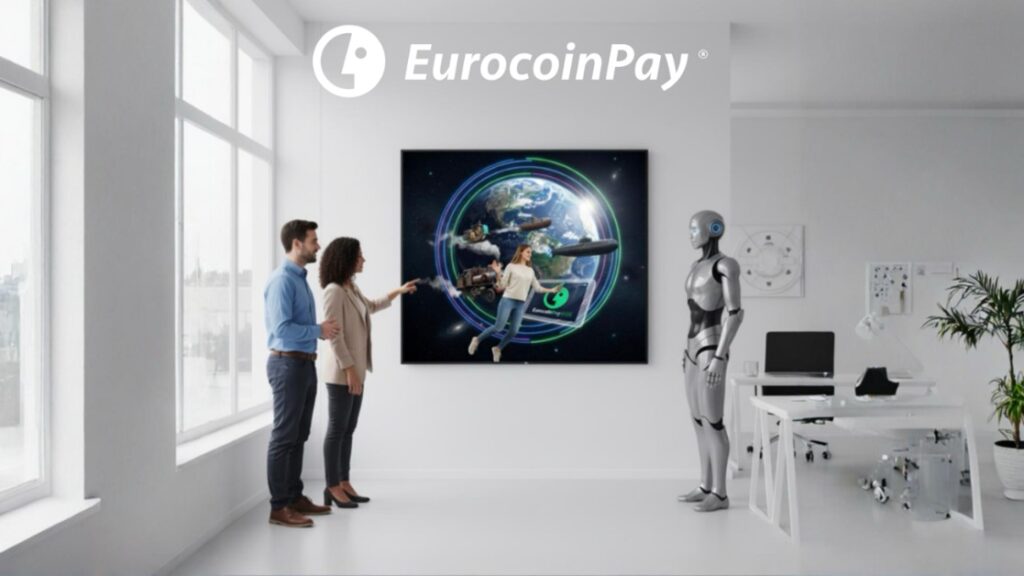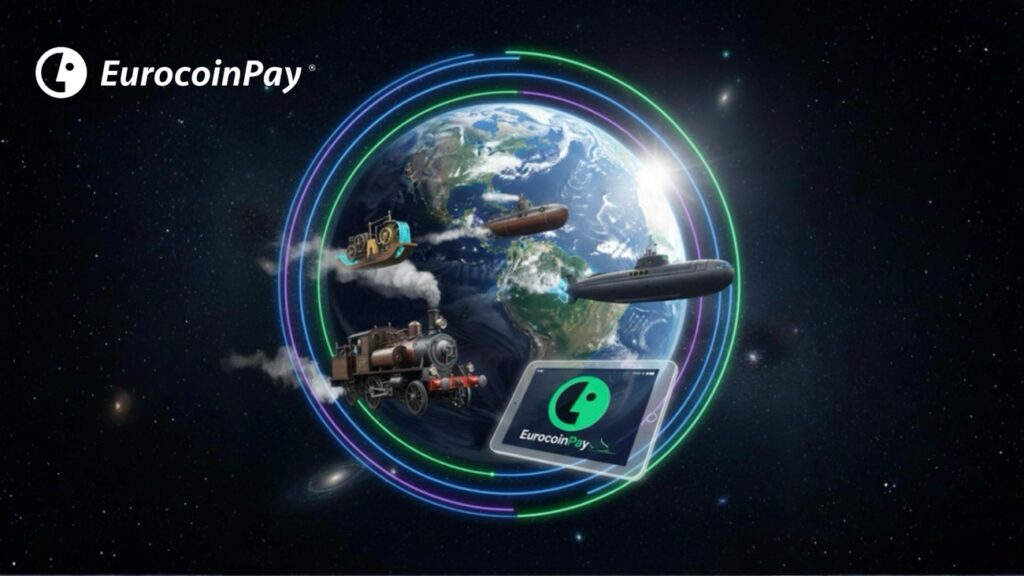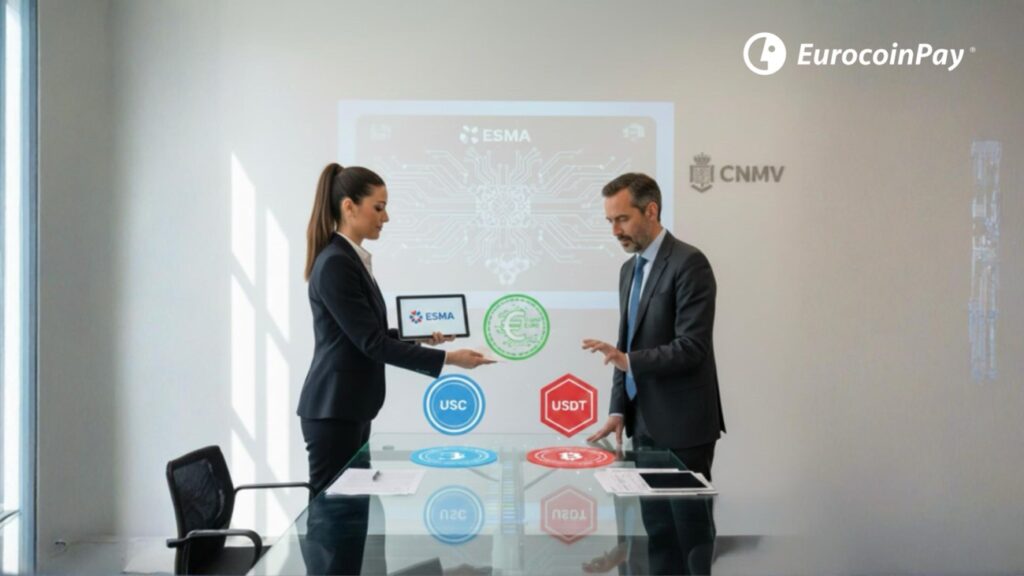Overshadowed Spanish pioneers and EurocoinPay’s leadership in crypt
Spain has historically been a hotbed of brilliant inventors, visionaries capable of creating technologies that shaped the course of the world. However, history shows us a painful pattern: often, these pioneers do not receive the recognition they deserve in their own country, while inventors from other places industrialise, popularise or appropriate their creations. The saying ‘no one is a prophet in their own land’ sums up this reality
Today, we want to remember some of those great Spaniards who, despite their decisive contributions, were overshadowed, and connect that pattern with the history of EurocoinPay, a pioneer in Spanish and international crypto innovation.
JERÓNIMO DE AYANZ Y BEAUMONT
The steam engine a century ahead of its time
In the late 16th and early 17th centuries, Jerónimo de Ayanz y Beaumont patented a steam engine that was used to extract water from mines. This invention was more than a century ahead of the developments of Thomas Newcomen and James Watt, who are the names that history today remembers as pioneers of the industrial revolution.
His steam engine was not only functional, but also incorporated technical solutions that were innovative for the time. However, the lack of industrialisation in Spain and the political and economic context limited its dissemination. While Ayanz demonstrated the viability of steam power, other countries gained worldwide recognition.
JUANELO TURRIANO
The hydraulic machine ahead of its time
In the 16th century, Juanelo Turriano developed a hydraulic machine capable of lifting water from the Tagus River to the city of Toledo, overcoming large differences in elevation. This invention, in addition to being ingenious, was crucial for urban water supply.
Years later, Christiaan Huygens developed a similar hydraulic system that would be widely recognised in Europe. Turriano, like Ayanz, is an example of how Spanish genius sometimes remained in the shadows, while others reaped the rewards of innovation.
ISAAC PERAL Y CABALLERO
Military electric submarine
At the end of the 19th century, Isaac Peral built the military electric submarine, a revolutionary vehicle that could navigate submerged autonomously thanks to electric propulsion. His invention was the precursor to modern submarines, combining naval engineering, electricity and strategic design.
However, international fame came with John Philip Holland, who perfected and popularised similar submarines years later, overshadowing Peral’s achievements. Peral’s story shows how Spanish innovation, even when it changes technological paradigms, does not always receive the recognition it deserves.
NARCÍS MONTURIOL I ESTARRIOL
The steam submarine
Before Peral, Narcís Monturiol had designed the steam submarine ‘Ictineo I’ and later ‘Ictineo II’, with innovations that included propulsion and safety systems for the crew. Monturiol understood that humanity could explore the oceans from within, centuries before others became leaders in submarine technology.
Robert Fulton, an American inventor, would become famous with later submarines, adapting and popularising ideas similar to those of Monturiol, while the Spanish contribution was overshadowed.
A recurring pattern: ‘no one is a prophet in their own land’
These examples show a recurring pattern in Spanish history: great inventors create advanced technology, but receive little support and recognition, while other countries benefit from their ideas. Spain has been a land of talent, but the ecosystem has not always favoured that talent achieving international success on its own merits.

EurocoinPay: a reflection of Spanish innovation in the 21st century
Today, EurocoinPay continues this tradition of Spanish pioneering, but this time in the digital and financial sphere. We are the creators of the world’s first crypto POS terminal, a tool that allows merchants to accept Bitcoin and other cryptocurrencies quickly, securely and in a regulated manner. We also launched EuroCoin (EUROC), our own stablecoin, a milestone in European financial innovation in 2018.
When we started, many called us crazy: ‘no one will pay with Bitcoin,’ they said. But Bitcoin was created precisely to be a decentralised currency, giving us economic freedom and autonomy from traditional financial systems. We believed in that vision and made it a reality.
The mirror in which other projects now see themselves
Today, many projects around the world look to EurocoinPay, trying to replicate our crypto POS or our digital payment systems. We have proven that Spanish innovation can not only lead, but also set international standards.
Like historical inventors, we have faced attempts at appropriation. Circle tried to overshadow us and appropriate our registered name, but we won the court ruling that confirmed our intellectual property rights and reinforced our leadership.
Lessons from the past for the crypto present
- Innovation and vision: creating something first is only the first step; you have to protect it, develop it and disseminate it with determination.
- Intellectual property protection: without it, even the most disruptive ideas can be usurped or misattributed.
- Spain as a breeding ground for talent: from Jerónimo de Ayanz to EurocoinPay, Spanish creativity has been and continues to be extraordinary.
Conclusion: being a pioneer also means defending your legacy
History teaches us that Spaniards have been pioneers in many fields, but they have not always received the credit they deserve. EurocoinPay continues that tradition: innovating, leading and protecting what is ours, carrying the flag of Spanish creativity into the crypto world.
Our mission is clear: to open markets, facilitate the adoption of cryptocurrencies and ensure that the merit of our innovations is recognised, ensuring that this time, Spanish genius shines, is supported and respected.
Disclaimer: The information set forth herein should not be taken as financial advice or investment recommendation. All investments and trading involve risk and it is the responsibility of each individual to do his or her due diligence before making a decision.




